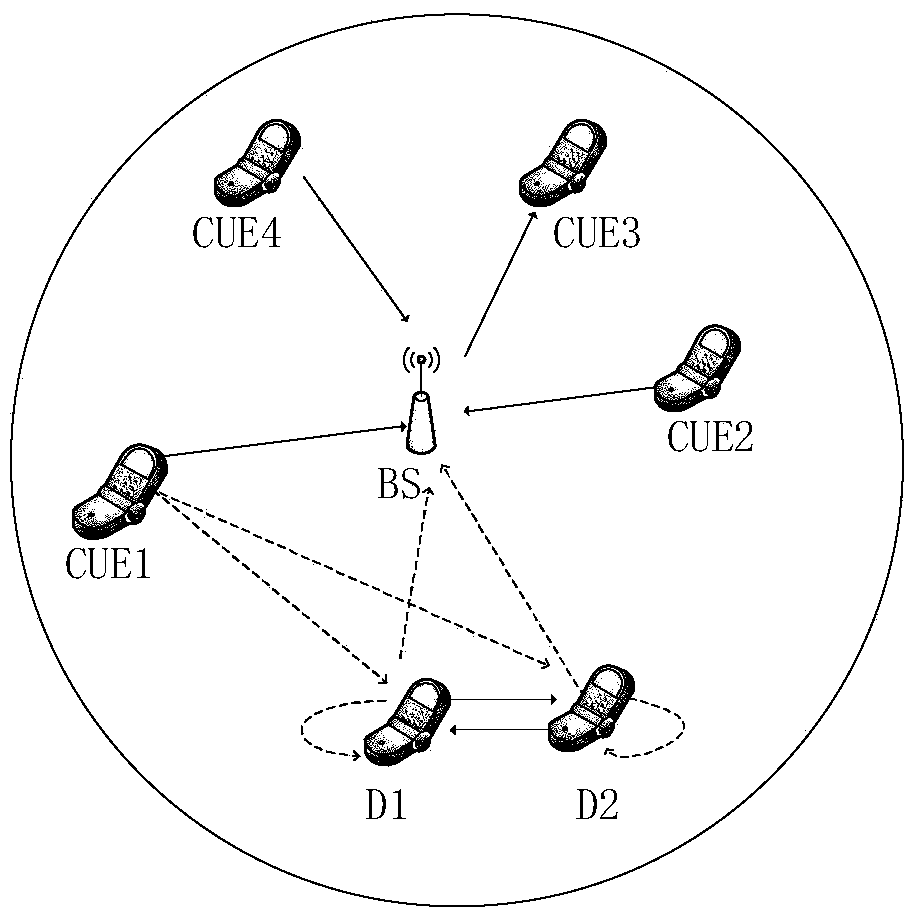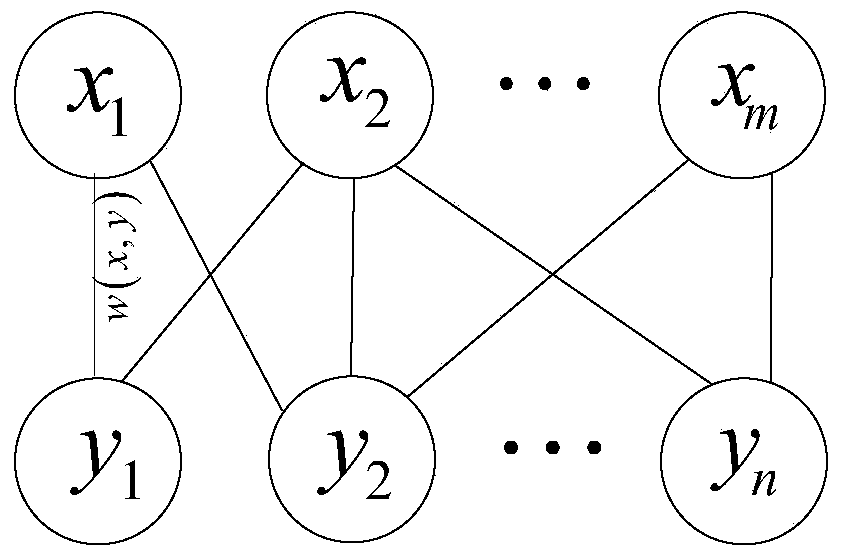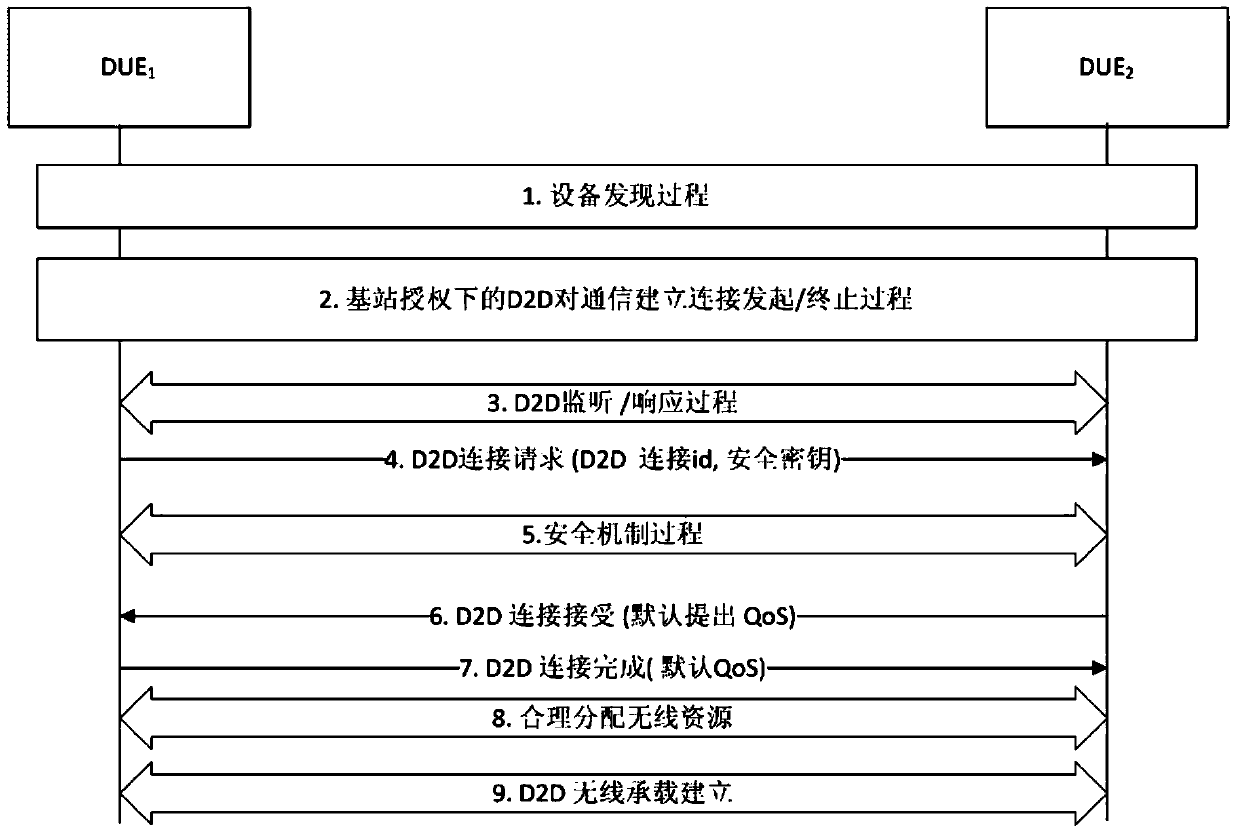A resource allocation method supporting full-duplex d2d communication in a cellular network
A resource allocation and cellular network technology, applied in the field of resource allocation, can solve the problem of not considering the situation of D2D users sharing resources with multiple cellular users, and achieve the effect of maximizing throughput and reducing co-channel interference
- Summary
- Abstract
- Description
- Claims
- Application Information
AI Technical Summary
Problems solved by technology
Method used
Image
Examples
Embodiment Construction
[0031] The present invention will be further explained below in conjunction with the drawings:
[0032] Such as figure 1 Shown is the system model of D2D multiplexing cellular uplink resources. Assuming that in a single cell, the base station is located at the center of the cell, and there are N cellular users and M pairs of D2D users in the cell. Define the set of cellular users as C={CUE 1 ,CUE 2 ,...,CUE N }, the set of D2D user pairs is D={D2D 1 ,D2D 2 ,...,D2D M }. Cellular users communicate through base station (BS) forwarding, and D2D users communicate directly in a full-duplex communication mode when multiplexing the uplink resources of the cellular users.
[0033] In the above-mentioned full-duplex communication mode, two D2D users in a pair of D2D users both cause interference to the base station receiving signals from cellular users, and at the same time, the signals sent by the cellular users also cause interference to the D2D users. Since the D2D user pair communicate...
PUM
 Login to View More
Login to View More Abstract
Description
Claims
Application Information
 Login to View More
Login to View More - R&D
- Intellectual Property
- Life Sciences
- Materials
- Tech Scout
- Unparalleled Data Quality
- Higher Quality Content
- 60% Fewer Hallucinations
Browse by: Latest US Patents, China's latest patents, Technical Efficacy Thesaurus, Application Domain, Technology Topic, Popular Technical Reports.
© 2025 PatSnap. All rights reserved.Legal|Privacy policy|Modern Slavery Act Transparency Statement|Sitemap|About US| Contact US: help@patsnap.com



